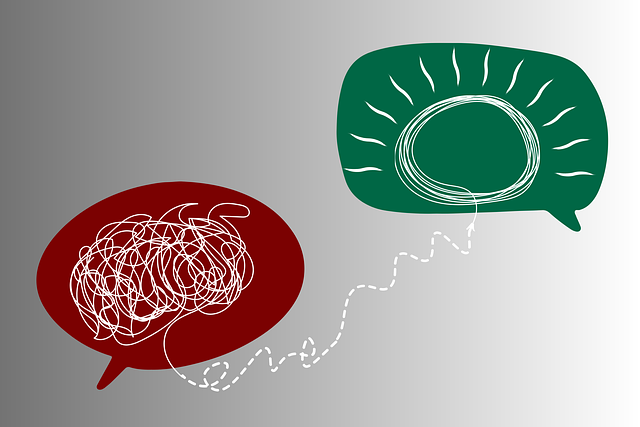Wheat Ridge Cognitive Processing Therapy (WRCPT) emphasizes mindfulness meditation as a powerful tool for cognitive processing and emotional well-being. By focusing on the present moment without judgment, individuals enhance self-awareness, stress navigation, concentration, and decision-making skills. Regular practice reduces risk of mental health issues, improves conflict resolution, empathy building, and fosters positive thinking patterns. WRCPT provides structured techniques like guided visualizations and body scans to overcome challenges, cultivate resilience, and integrate mindfulness into daily life, ultimately transforming mundane activities into moments of calm and clarity.
“Unwind and embrace a journey of self-discovery with mindfulness meditation—a powerful tool for cognitive processing. This comprehensive guide offers a step-by-step approach, drawing from the principles of Wheat Ridge Cognitive Processing Therapy. We’ll explore how preparing your mind and space sets the stage for effective practice. From techniques to overcoming challenges, this article equips you to integrate mindfulness into daily life, cultivating awareness beyond the cushion.”
- Understanding Mindfulness Meditation: A Foundation for Cognitive Processing
- Preparing Your Mind and Space: Setting the Stage for Effective Practice
- Techniques and Exercises: Navigating Wheat Ridge Cognitive Processing Therapy
- Overcoming Common Challenges: Tips to Sustain Your Meditation Journey
- Integrating Mindfulness into Daily Life: Cultivating Awareness Beyond the Cushion
Understanding Mindfulness Meditation: A Foundation for Cognitive Processing

Mindfulness meditation is a powerful tool that fosters cognitive processing and emotional well-being. At its core, it encourages individuals to focus on the present moment, observing thoughts and feelings without judgment. This practice has gained significant traction in Wheat Ridge Cognitive Processing Therapy, where therapists utilise mindfulness as a foundation for guiding clients through complex emotions and challenging situations. By cultivating awareness, individuals can enhance their ability to navigate stress, improve concentration, and develop healthier thinking patterns.
Incorporating mindfulness into daily routines allows for better conflict resolution techniques and empathy building strategies. It enables individuals to respond to triggers mindfully, promoting calm and rational decision-making. Moreover, regular practice may reduce the risk of mental health issues, as it enhances self-awareness and emotional regulation—crucial aspects in managing psychological well-being.
Preparing Your Mind and Space: Setting the Stage for Effective Practice

Preparing your mind and space is a crucial step in setting the stage for effective mindfulness meditation practice. Start by finding a quiet, comfortable location free from distractions. Create a peaceful ambiance with soft lighting and perhaps some calming music or nature sounds playing softly in the background. Ensure your posture is upright but relaxed; this promotes mental alertness while allowing your body to fully engage in the practice. Take a few deep breaths to center yourself and clear your mind of any lingering thoughts or worries, setting an intention for your meditation session that aligns with your personal goals, whether it’s stress reduction, improved focus, or emotional well-being.
In the context of Wheat Ridge Cognitive Processing Therapy (WRCPT), preparing your space can also involve implementing a structured routine to support consistent practice. Consider incorporating a community outreach program or even conducting a risk assessment for mental health professionals to enhance your meditation environment and ensure it meets your unique needs. By setting aside dedicated time and creating a safe, mindful space, you’re laying the foundation for a successful meditation practice that may lead to profound self-awareness and improved cognitive processing abilities.
Techniques and Exercises: Navigating Wheat Ridge Cognitive Processing Therapy

Wheat Ridge Cognitive Processing Therapy (WRCPT) offers a structured approach to mindfulness meditation, guiding individuals through specific techniques and exercises tailored to their needs. This therapy focuses on helping clients navigate their thoughts and emotions by fostering positive thinking and effective stress management. Through WRCPT, individuals learn to challenge negative thought patterns and reduce the impact of mental illness stigma, ultimately enhancing their overall well-being.
The practice involves a range of activities, from guided visualizations to body scans, designed to promote mindfulness in daily life. These exercises help individuals become more aware of their thoughts and feelings without judgment, fostering a sense of calm and clarity. By integrating WRCPT techniques into their routine, participants can better manage stress, improve focus, and cultivate a positive mindset, all of which contribute to mental health and resilience.
Overcoming Common Challenges: Tips to Sustain Your Meditation Journey

Overcoming Common Challenges on Your Meditation Journey
Meditation can be a transformative practice, but it’s not always easy to stick with it. Many beginners face challenges that threaten to derail their progress. A key component in navigating these obstacles is understanding and addressing underlying mental blocks. For instance, those new to mindfulness might struggle with distracting thoughts or find themselves getting frustrated when the session doesn’t go as planned. Embracing Mind Over Matter principles requires patience and self-compassion. Remember, each practice session is an opportunity to strengthen your focus and calm your mind, even if it feels like a struggle at first.
To sustain your meditation journey, consider integrating techniques that support your overall mental wellness. This might include combining mindfulness with Wheat Ridge Cognitive Processing Therapy to address deeper issues or exploring Mental Wellness Coaching Programs Development tailored to healthcare providers facing burnout. By incorporating diverse strategies, you can create a robust self-care routine that nurtures resilience and deepens the benefits of meditation over time.
Integrating Mindfulness into Daily Life: Cultivating Awareness Beyond the Cushion

Integrating mindfulness into daily life goes beyond the cushion. After initial meditation practice, it’s crucial to cultivate awareness in everyday activities. Simple tasks like eating, walking, or even brushing your teeth can become opportunities for mindful presence. By focusing on the sensations, thoughts, and emotions that arise during these routines, you strengthen your ability to stay grounded and attentive.
This extended mindfulness practice, often facilitated by Wheat Ridge Cognitive Processing Therapy, empowers individuals to manage stress, prevent depression, and enhance overall well-being. It’s like weaving a tapestry of awareness where each moment becomes a thread, contributing to resilience and trauma support services. Regular engagement in these practices can transform mundane activities into moments of self-care, fostering a sense of calm and clarity throughout your day.
Mindfulness meditation, as explored through the lens of Wheat Ridge Cognitive Processing Therapy, offers a transformative journey towards cognitive clarity and emotional balance. By understanding its foundations, preparing your mind and space, mastering techniques, overcoming challenges, and integrating mindfulness into daily life, you can cultivate a deeper sense of awareness and well-being. Embrace this practice not just as a momentary pause but as a lifelong dance with your thoughts, enabling you to navigate life’s twists and turns with grace and resilience.














